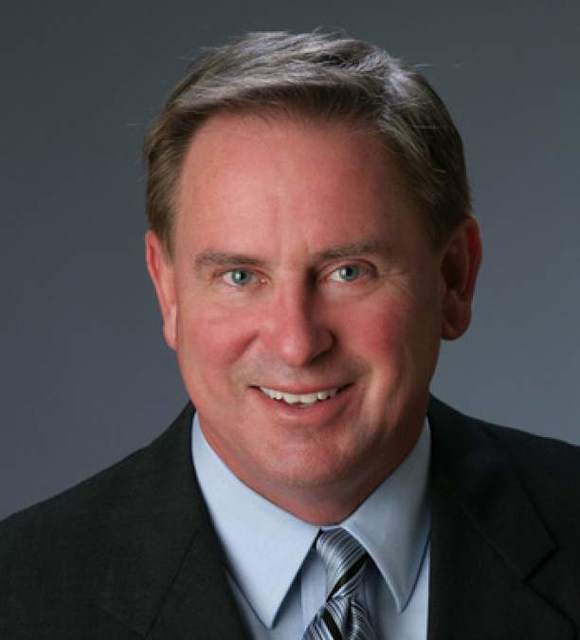One of the most daunting aspects of climate change is the fundamental nature of its cause.
Like an actor to Kevin Bacon, nearly every modern human endeavor is only a few degrees separated from a massive emission of carbon—be it through the tailpipe of a car, in the contrail of a jetliner, or out of the smokestack of a power plant.
Thus, if it seems as if climate activists are everywhere protesting everything, that’s because they are, and must be. Only an on-all-fronts attack will address the on-all-fronts enemy.
However, the wrongheaded campaign against Larry Weis, Mayor Ed Murray’s nominee for CEO of Seattle City Light, demonstrates how this strategy can misfire. While a Seattle City Council committee voted in favor of Weis’ nomination yesterday—over the objections of a cadre of environmental groups and Councilmembers Kshama Sawant and Mike O’Brien—the climate movement’s salvos against Weis, while promising very little by way of carbon reductions, have risked alienating a policy leader who could be an important movement ally in years to come. Worse, a close examination of the campaign suggests that these activists have come to expect an ideological purity with something close to religious fervor—a posture that will have no place in any real attempts to find a path forward to a more climate-friendly future.
Opposition to Weis stemmed from a dispute he’d had with green-energy advocates during his previous job as head of Austin’s public utility, Austin Energy. The core of the debate was a disagreement over whether natural gas or solar would be a cheaper source of power over the next decade, thus affecting what kind of infrastructure the utility should invest in. Austin Energy’s numbers suggested natural gas was cheaper and a natural-gas plant would be the way to go; an advisory board convened by the City Council suggested it was solar, and encouraged more investment in that direction.
It was during this dollars-and-cents debate that Weis uttered the heresy that made him unfit, in the eyes of some, to enter the temple of Seattle: “Solar cannot replace natural-gas-fired power plants today.”
“Weis’ failure to fully consider the possibilities around renewable energy, coupled with his lack of desire to engage with the community and even, it would seem, City Council, has left many worried around his commitment to carbon neutrality. Environmental groups the Sierra Club, 350 Seattle, Got Green, and Rising Tide Seattle have all come out opposing his appointment,” 350 Seattle activist Alec Connon wrote on Crosscut on Monday.
Connon’s reading of Weis’ history is selective, to say the least. Weis made the above comment in August 2014; by that December, AE had reached a deal with the Sierra Club and presented it to the Austin City Council. More recently, the Sierra Club has praised AE under Weis’ tenure for coming to the table to increase solar power in Austin. Outside of this squabble, AE’s energy portfolio saw its share of renewable energy grow from 1 percent to 35 percent. To see Weis as the environmental foe some want us to, we’re encouraged to believe that his opposition to solar was purely ideological—rather than born from a concern for ratepayers, not a bad motivation in increasingly unaffordable Seattle—and that in the end the Sierra Club decided to aid and abet this carbon-at-all-costs crusade. But the record just doesn’t bear that out.
All the more frustrating is the fact that the utility Weis has been appointed to lead is currently responsible for nary a molecule of carbon from entering the atmosphere. The vast majority of Seattle’s electricity comes from hydropower; what carbon does find its way onto our grid—via the Bonneville Power Administration—is offset with credits. In other words, Exxon/Mobil itself probably couldn’t turn Seattle City Light into a carbon producer. Climate activists readily admit that Weis will not scrap our city’s dams in favor of new natural-gas plants, so they go searching for other hypothetical repercussions of a Weis appointment. For example, in his Crosscut column, Connon writes that his group worries that Weis will not invest enough in electric-car charging stations. We are confident that issue can be worked out without sending Weis packing.
In a phone interview, Connon acknowledges that 350 Seattle is setting a very high bar for Weis to jump over, but that such a high bar is necessary to ensure that Seattle remains a clean-energy leader. After all, competition is tough, with other city-owned utilities ramping up their carbon-free bona fides. Just last November, for example, the Sierra Club published an extended blog post. Its title: “How Austin Became a Solar Powerhouse.”
Seattle Weekly delivers the latest in city politics, crime, and business news. If you know something we should know, e-mail news@seattleweekly.com. Follow us on Facebook, Twitter, and Instagram. Get more Seattle news by subscribing to our weekly newsletters.







